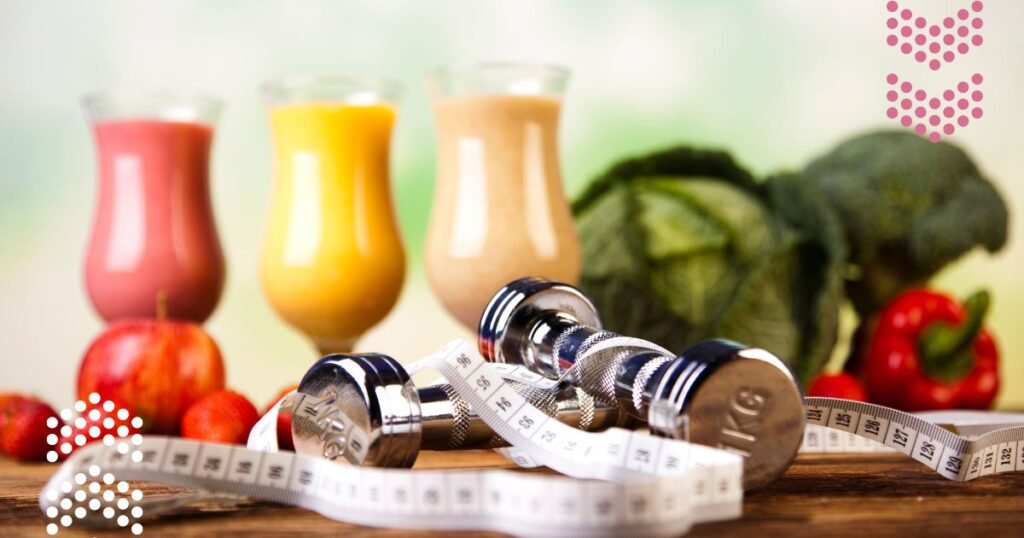Micronutrients (Vitamins, Minerals) for Weight Loss in Women: A Comprehensive Guide
Micronutrients, including vitamins and minerals, play an essential role in women’s health, especially during weight loss. These small but mighty nutrients are crucial for regulating metabolism, maintaining energy levels, and supporting overall well-being. While macronutrients like carbohydrates, proteins, and fats often get more attention in the world of weight loss, it’s important not to overlook micronutrients. Without them, your body won’t function at its best, and weight loss efforts may stall.
In this article, we’ll explore the importance of micronutrients in nutrition and dietary strategies for women, focusing on the specific vitamins and minerals that support effective weight loss.
Key Vitamins for Women’s Health
Vitamin D and Weight Loss in Women
Vitamin D is one of the most critical vitamins for women, particularly when it comes to weight loss and hormonal balance. This fat-soluble vitamin helps regulate insulin levels, which can directly impact how your body stores fat. Additionally, low levels of vitamin D are associated with increased body fat and obesity. Ensuring adequate vitamin D intake through sunlight exposure, supplements, or foods like fatty fish can help support a healthy weight and prevent fat accumulation.
Vitamin D also plays a role in bone health, which is especially important for women as they age. Maintaining strong bones allows you to stay active, a key component of any weight loss journey. Deficiencies in vitamin D may lead to fatigue and low energy, making it harder to maintain an active lifestyle.
Vitamin B-Complex for Boosting Metabolism
The B-complex vitamins, including B1 (thiamine), B2 (riboflavin), B3 (niacin), B6 (pyridoxine), and B12, are essential for converting food into energy. These vitamins help metabolize carbohydrates, fats, and proteins, making them crucial for anyone trying to lose weight. Vitamin B12, in particular, plays a significant role in boosting metabolism and preventing fatigue, two factors that are critical during weight loss.
A lack of B vitamins can result in low energy levels, making it difficult to maintain regular exercise. Many women, especially those who follow vegetarian or vegan diets, may be deficient in vitamin B12 since it’s primarily found in animal products. Taking a B-complex supplement or consuming foods rich in B vitamins, such as leafy greens, eggs, and whole grains, can help ensure you’re getting enough of these essential nutrients. Learn more about key vitamins for women’s health to support your weight loss efforts.
Vitamin C as a Fat Burner
Vitamin C is well-known for its immune-boosting properties, but did you know it also plays a role in fat burning? Studies have shown that individuals with higher levels of vitamin C oxidize fat more effectively during exercise. This means that consuming enough vitamin C can help your body use fat as a fuel source more efficiently, leading to better weight loss results.
Additionally, vitamin C is a powerful antioxidant that helps fight oxidative stress. Weight loss can sometimes put a strain on the body, increasing oxidative damage. By ensuring adequate vitamin C intake, you can help your body recover from workouts faster and protect your cells from damage. Foods rich in vitamin C include oranges, strawberries, bell peppers, and broccoli.
Vitamin E for Skin and Cellular Health
Vitamin E is another fat-soluble vitamin that plays a significant role in maintaining health during weight loss. While weight loss is often beneficial for overall health, it can sometimes lead to changes in skin elasticity, particularly if weight is lost quickly. Vitamin E helps support skin health by providing antioxidants that protect cells from oxidative stress, keeping the skin supple and glowing.
In addition to its skin benefits, vitamin E also aids in muscle recovery after exercise. For women engaged in regular physical activity as part of their weight loss journey, vitamin E can help reduce muscle soreness and speed up recovery. Foods rich in vitamin E include nuts, seeds, and green leafy vegetables.
Vitamin A and Weight Regulation
Vitamin A is primarily known for its role in maintaining healthy vision, but it also plays a part in regulating body weight. It helps with the production of hormones that influence how fat is stored and metabolized in the body. For women, getting enough vitamin A is essential to support overall health and well-being, especially during weight loss. Vitamin A-rich foods like sweet potatoes, carrots, and spinach can help maintain a healthy body composition.
Essential Minerals for Women’s Weight Loss
Calcium: Beyond Bone Health
Calcium is a well-known mineral for bone health, but it also plays a role in weight loss. Research suggests that calcium can help prevent fat storage and promote fat breakdown. This is particularly important for women, as hormonal changes throughout life can affect calcium levels and bone density. Adequate calcium intake supports muscle function during exercise, helping you stay active and achieve your weight loss goals.
To get enough calcium, include dairy products like milk, yogurt, and cheese in your diet, or opt for plant-based sources such as leafy greens and fortified almond milk. Calcium is also essential for preventing osteoporosis, making it doubly important for women as they age.
Iron: Energy Production for Women
Iron is vital for energy production and oxygen transport, both of which are essential for maintaining an active lifestyle. Women are particularly prone to iron deficiencies due to menstruation, which can lead to fatigue and low energy levels. Without enough iron, it becomes harder to stay active, hindering weight loss efforts.
To boost iron intake, include iron-rich foods like red meat, spinach, and lentils in your diet. Pairing these foods with vitamin C-rich foods, such as oranges or tomatoes, can enhance iron absorption. Women who struggle with iron levels may also benefit from iron supplements.
Magnesium: Regulating Blood Sugar Levels
Magnesium is an essential mineral that plays a significant role in regulating blood sugar levels and supporting insulin sensitivity. This is crucial for women trying to lose weight, as poor insulin sensitivity can lead to fat storage, especially in the abdominal area. Magnesium helps maintain healthy blood sugar levels, reducing sugar cravings and preventing overeating.
In addition to its role in blood sugar regulation, magnesium promotes better sleep, which is essential for weight management. Without proper rest, the body may produce more stress hormones like cortisol, leading to weight gain. Magnesium-rich foods include nuts, seeds, and dark chocolate. Discover more about how essential minerals aid women’s weight loss.
Zinc: Enhancing Fat-Burning Metabolism
Zinc is a critical mineral for regulating hormones that influence appetite and fat storage, such as leptin. Leptin helps control hunger signals and tells the body when to store or burn fat. For women, maintaining adequate zinc levels is important for balancing these hormones and promoting fat loss, particularly around the abdomen.
Zinc also supports immune function and muscle recovery, making it a valuable mineral for those who engage in regular physical activity. Zinc can be found in foods like meat, shellfish, legumes, and seeds.
Selenium: Antioxidant Power for Weight Loss
Selenium is an antioxidant-rich mineral that plays a crucial role in thyroid health. The thyroid gland regulates metabolism, and a healthy thyroid ensures that women can maintain an optimal metabolic rate. Selenium is essential for proper thyroid function and helps protect against oxidative stress during weight loss.
Getting enough selenium can support weight loss by ensuring your metabolism is running smoothly. Selenium-rich foods include Brazil nuts, seafood, and eggs.
How to Incorporate Micronutrients into a Weight Loss Diet for Women
Eating Whole Foods Rich in Vitamins and Minerals
The best way to ensure you’re getting enough vitamins and minerals for weight loss is by eating a varied diet rich in whole foods. Foods like leafy greens, lean proteins, fruits, and nuts are packed with essential nutrients that support weight loss. By incorporating a wide variety of nutrient-dense foods into your meals, you’ll give your body the fuel it needs to function optimally and burn fat efficiently.
Supplements: When to Consider Them
While getting your micronutrients from food is ideal, some women may need supplements to meet their nutritional needs. This is especially true for those with dietary restrictions, such as vegetarians or vegans, or those who may have increased nutrient needs during life stages like pregnancy or menopause. Consult with a healthcare provider before adding any supplements to your routine.
Avoiding Micronutrient Deficiencies During Weight Loss
When on a calorie-restricted diet, it’s easy to become deficient in certain micronutrients. Common signs of deficiency include fatigue, slower recovery after exercise, and muscle weakness. By paying attention to the quality of your food and ensuring variety, you can avoid deficiencies and keep your body functioning at its best during your weight loss journey.
Conclusion
Micronutrients, including both vitamins and minerals, are crucial for women’s weight loss. From boosting metabolism to regulating hormones and supporting muscle recovery, these nutrients play a pivotal role in achieving a healthier body. Prioritizing a balanced diet rich in these micronutrients will not only help you lose weight but also improve your overall health and well-being.
For more in-depth information, be sure to explore our guide on key vitamins for women’s health and our guide to essential minerals for women’s weight loss.
For additional resources on women’s health and weight loss, check out this guide on healthy weight loss for women, or browse Harvard’s insights on diet and weight loss.
Browse our website for more insights on fitness, nutrition, and weight loss resources we offer.



